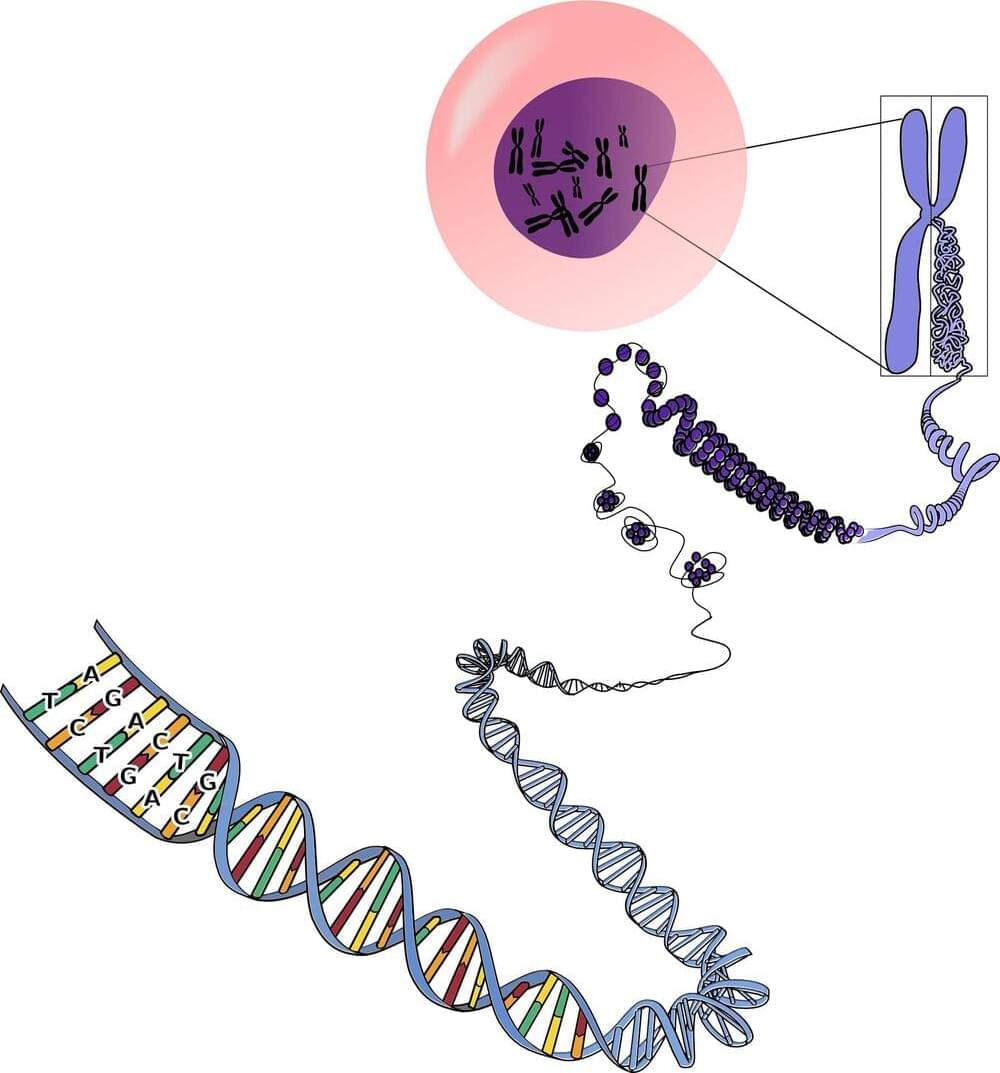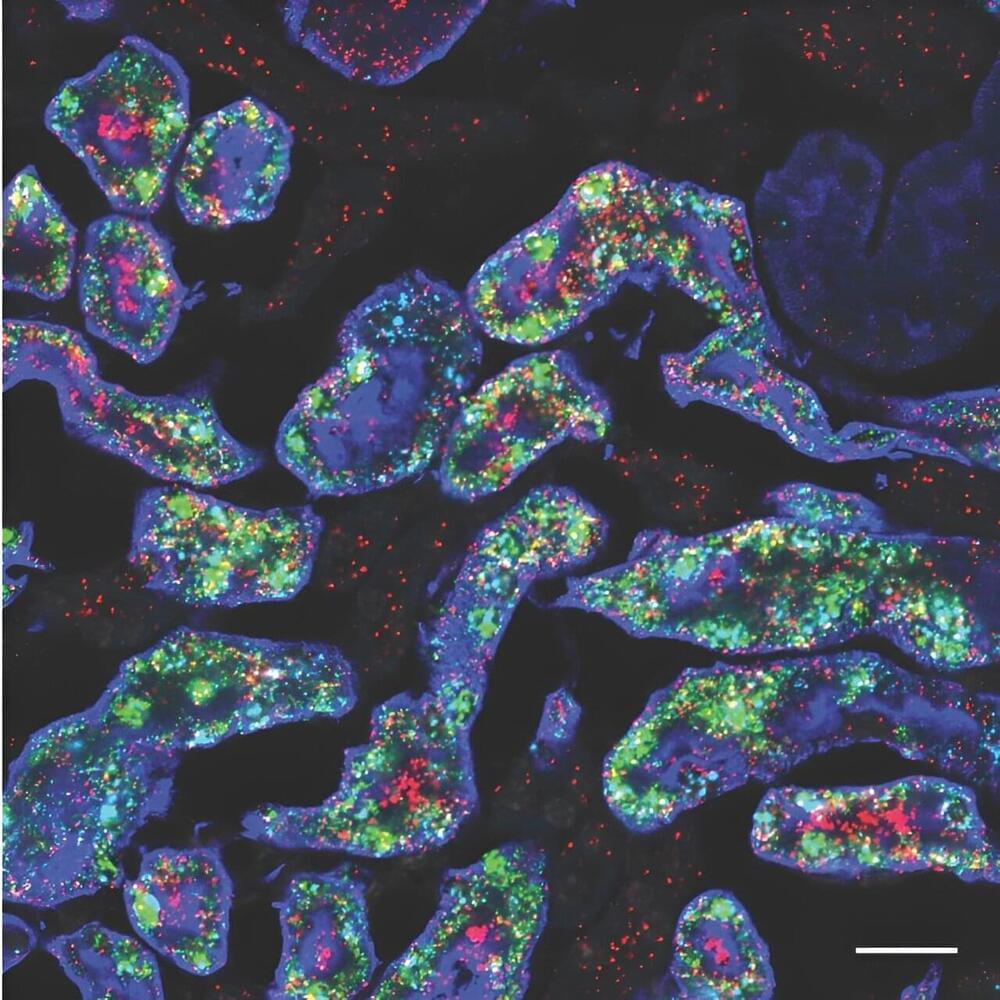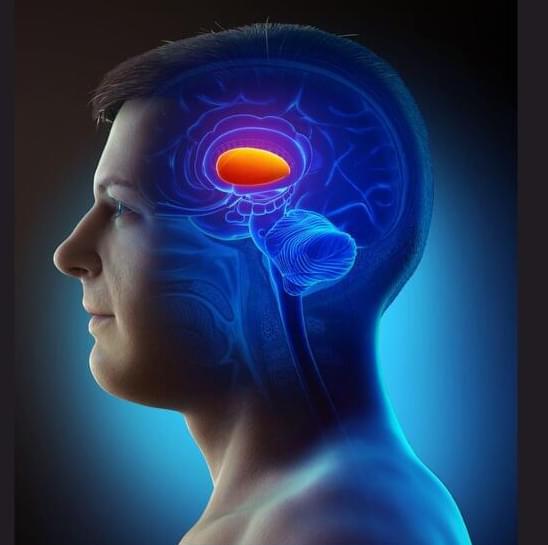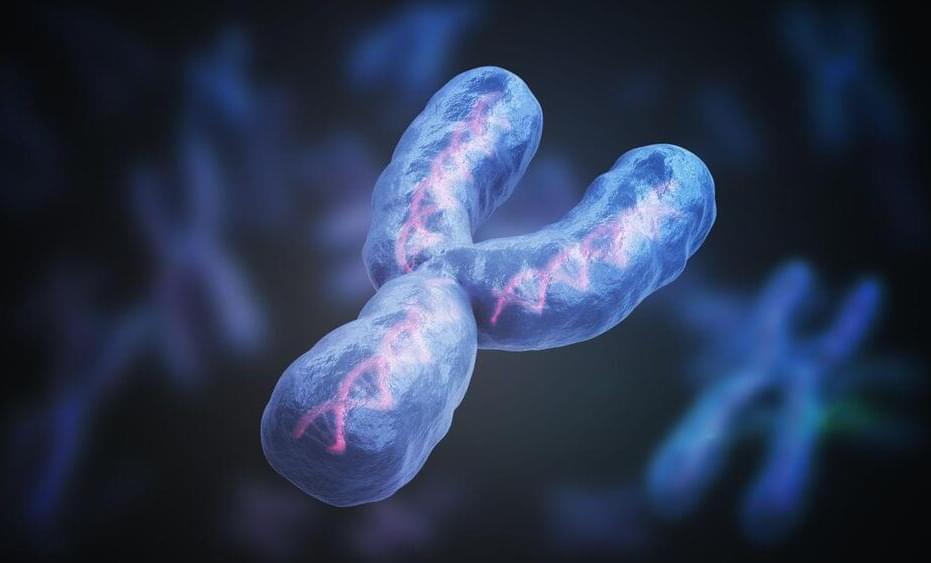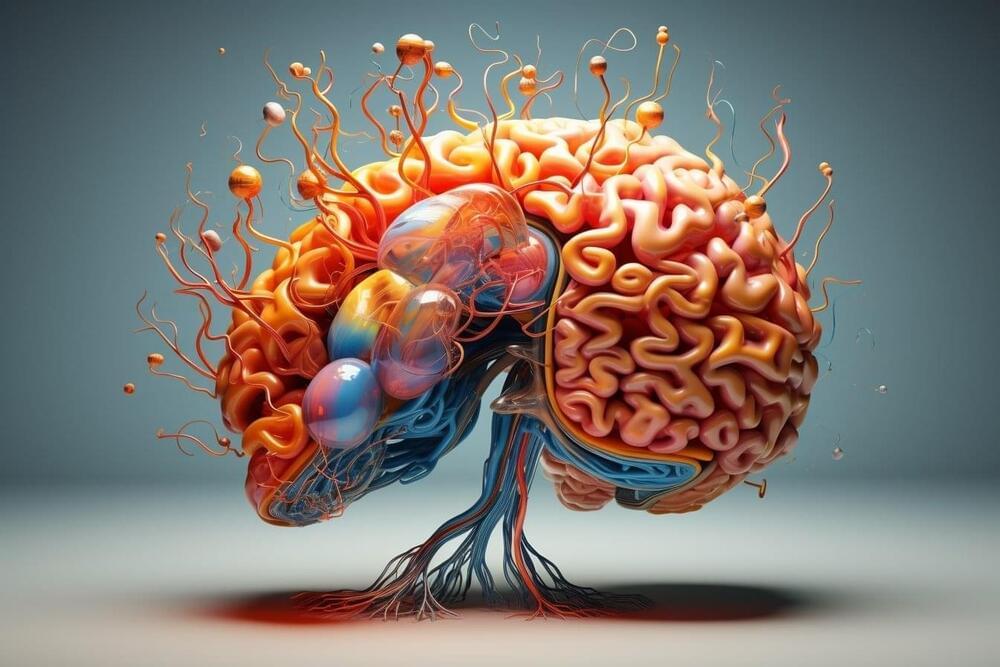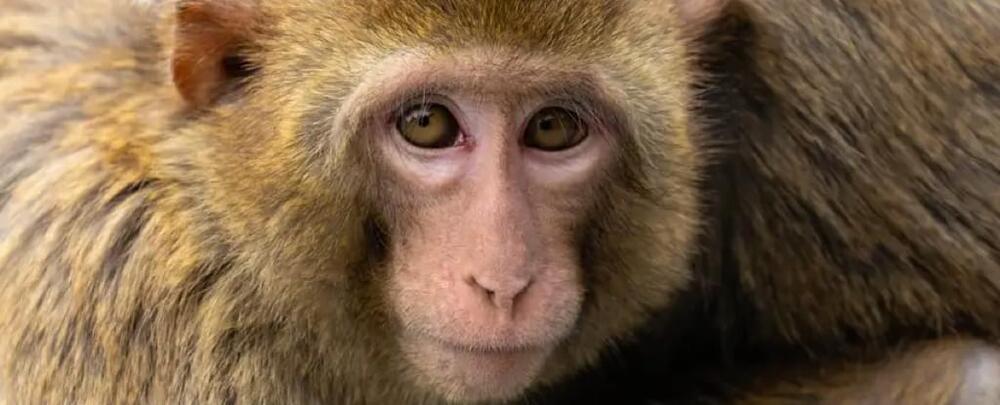Sep 11, 2023
The ‘weird’ male Y chromosome has finally been fully sequenced. Can we now understand how it works, how it evolved?
Posted by Genevieve Klien in categories: biotech/medical, sex
The Y chromosome is a never-ending source of fascination (particularly to men) because it bears genes that determine maleness and make sperm. It’s also small and seriously weird; it carries few genes and is full of junk DNA that makes it horrendous to sequence.
However, new “long-read” sequencing techniques have finally provided a reliable sequence from one end of the Y to the other. The paper describing this Herculean effort has been published in Nature.
The findings provide a solid base to explore how genes for sex and sperm work, how the Y chromosome evolved, and whether—as predicted—it will disappear in a few million years.
